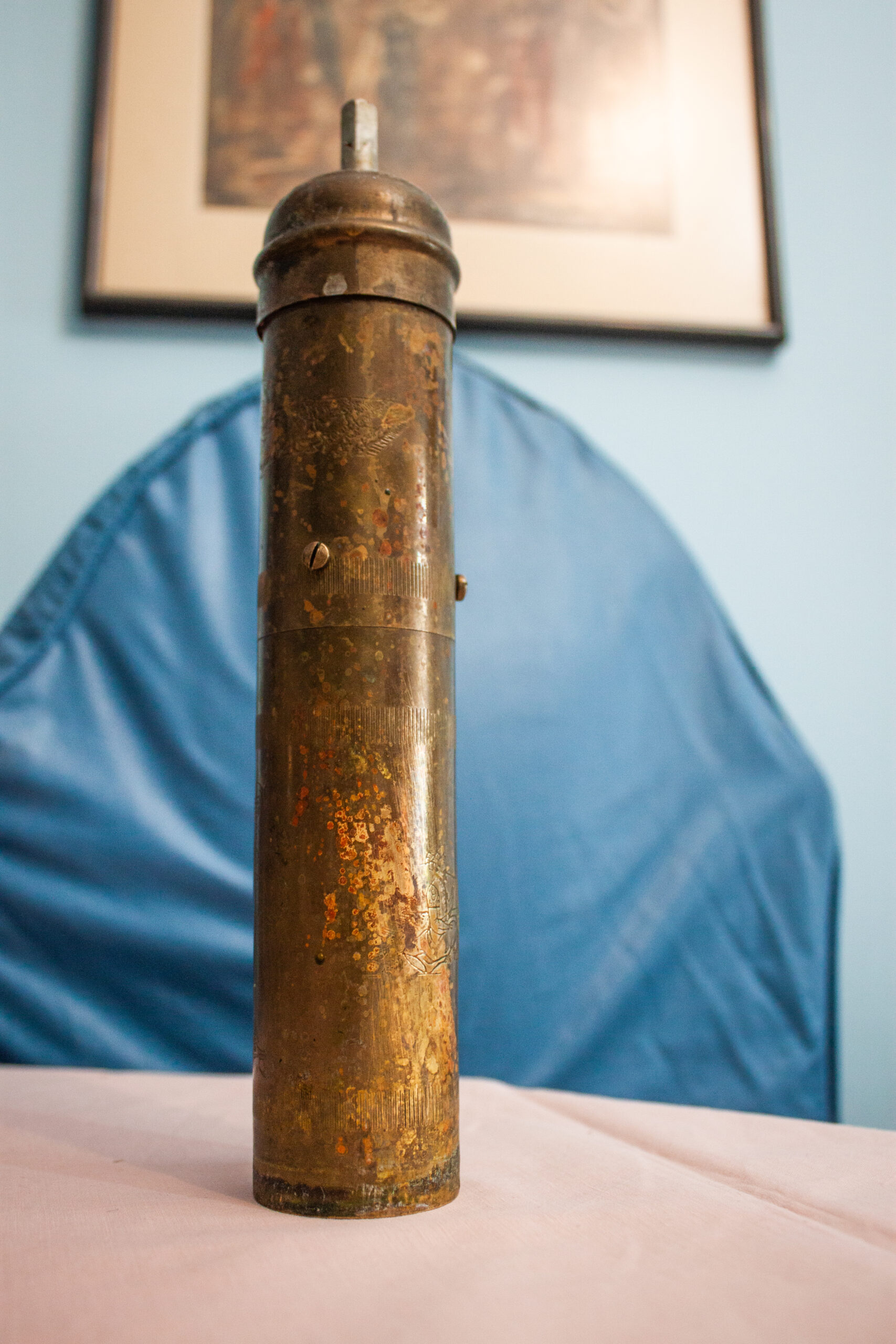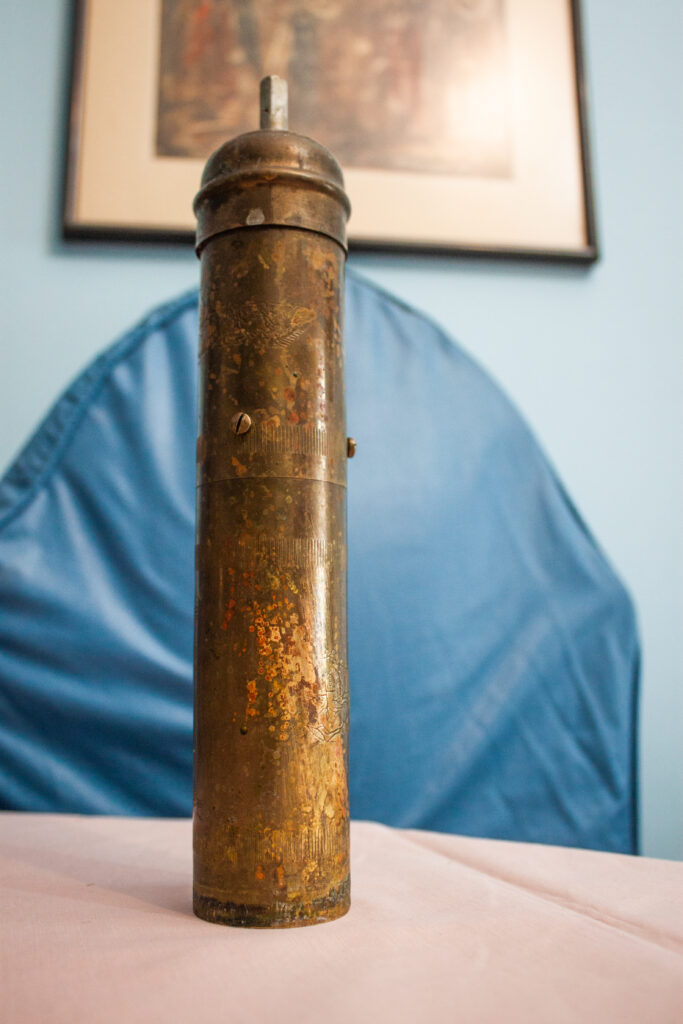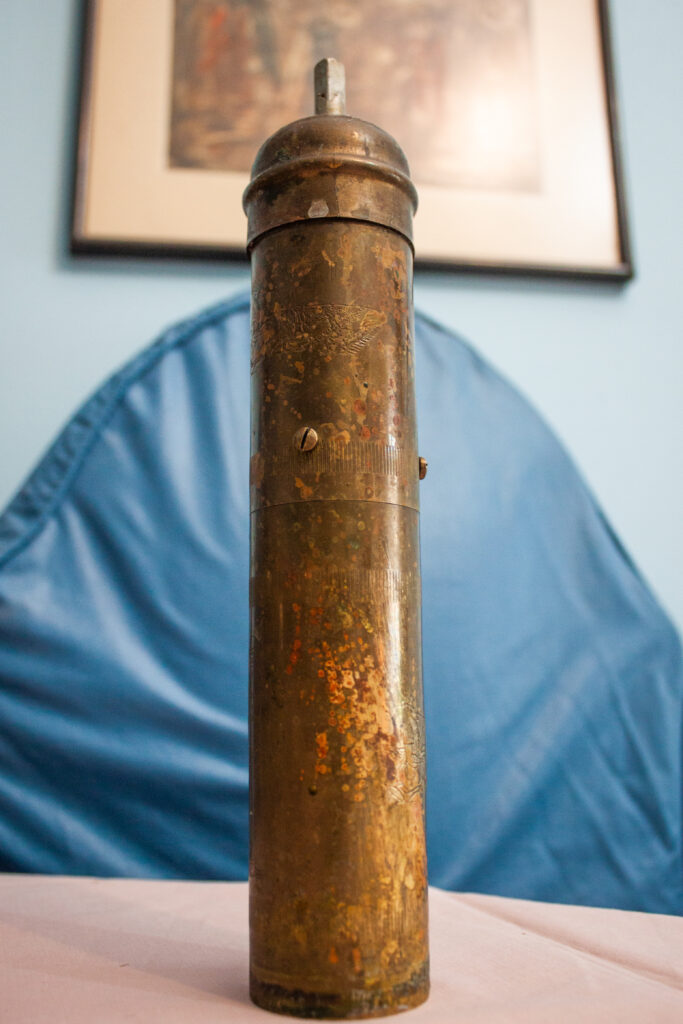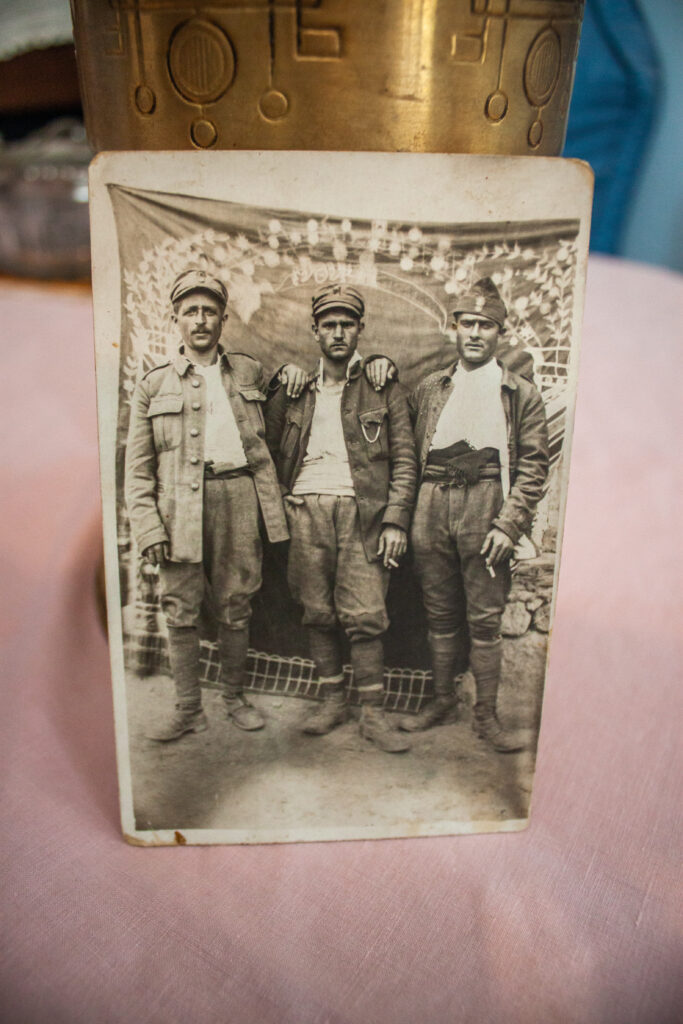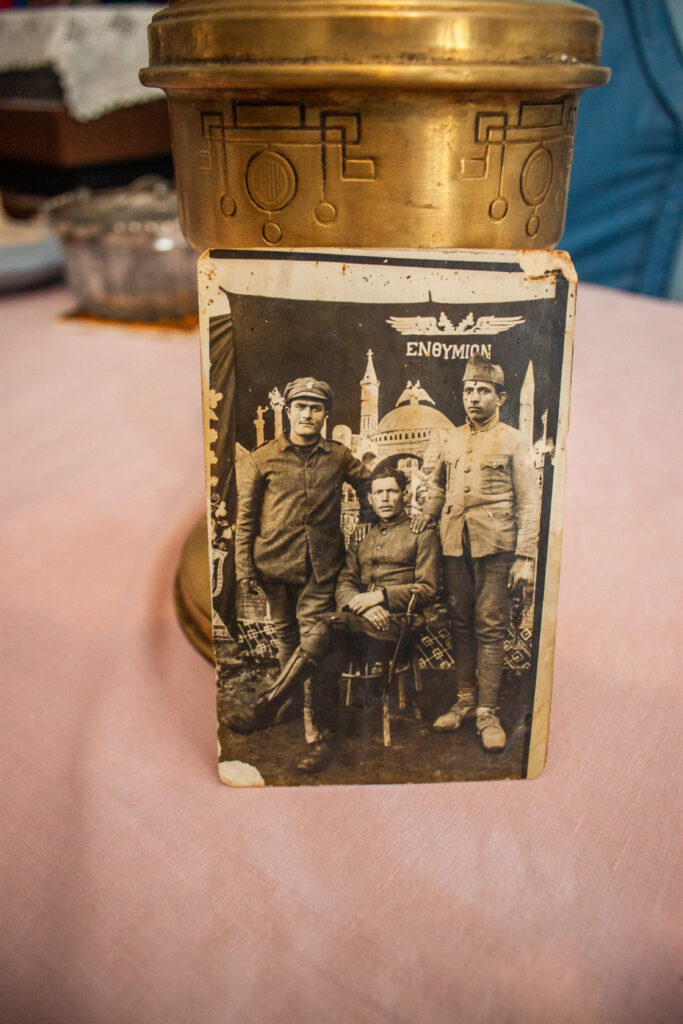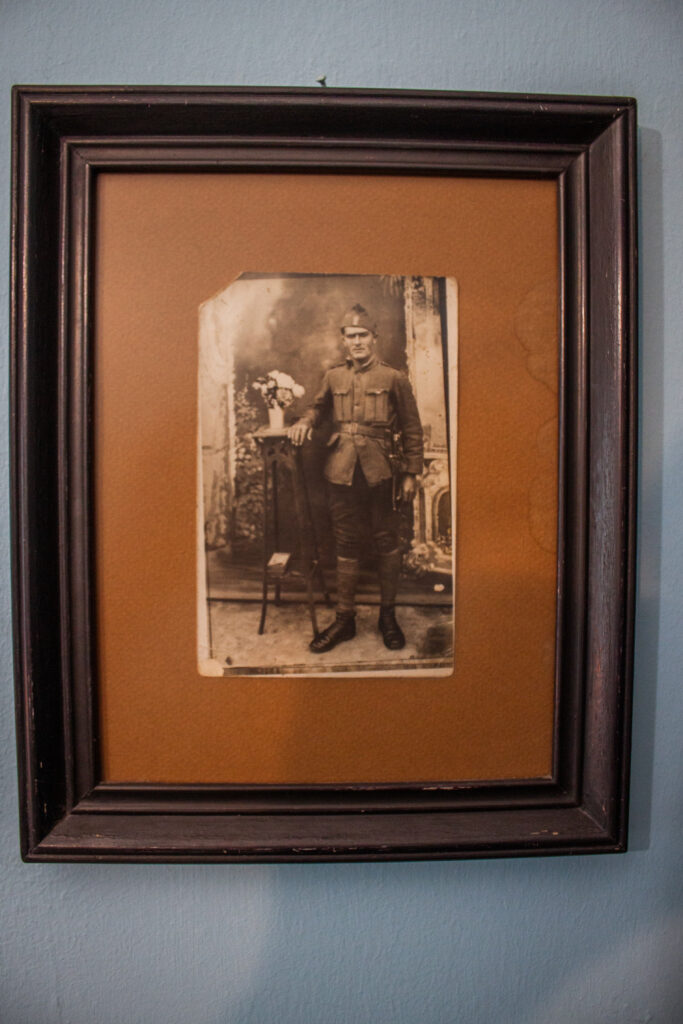Epameinondas Markis was born in Panormos of Asia Minor in 1901. He didn’t finish school because he was in the habit of throwing marbles at his teacher. He became a carpenter’s apprentice in Kontoskali, with his father handing over all responsibility for the boy to his master. In 1917, he was to be conscripted into the Ottoman army. To avoid serving, he chose to work in the lead mines in Balya, which he fled seven months later to escape the horrific conditions. He volunteered in the Greek army and saw action in the Greco-Turkish war. In 1922, he left Smyrna and rowed to Chios. When he learned that his family was in Thessaloniki, he tried to join them there and slept in Aigli until he found them. He started doing bridge construction work on Nestos River and then became a specialist carpenter for the railway. He first opened his own workshop on Papamarkou Street at the centre of Thessaloniki where he specialised in luxury chairs and then went on to open a bigger workshop with his partner, Achilleas Gaitanidis.
The rest of the family left Panormos and found themselves first in Raidestos (Tekirdağ) and then in Thessaloniki. The family included Anastasios Markis, his wife, Efterpi, and their children Chaido and Varvara, while two more children, Evdoxia and Niki, died at a young age. The other son of the family, Iordanis, died back in Asia Minor shortly before the end of the war; he had also been hiding to avoid conscription. Chaido died of tuberculosis in Thessaloniki soon after their settlement in Thessaloniki. Anastasios Markis made ends meet by selling off her dowry at Dioikitirio until they all reunited with Epameinondas, who took over the responsibility of providing for the whole family.
Efterpi Marki, daughter of Epameinondas and Olga Antoniou from Korissos, Kastoria, told Areti Kondylidou that the family had brought a big part of their household with them. Only some bronze cookware survives, along with three ‘precious’ items. Among them are a coffee grinder and a cleaver, which are engraved with the dates 1901 and 1904, the birth dates of Epameinondas and one of his sisters. His father liked to buy a household item after the birth of each child and engrave the child’s birth date on it.
This narrative is part of the archive of the Islahhane Cultural Centre under the aegis of the Service of Modern Monuments and Technical Works of Central Macedonia. We would like to sincerely thank Areti Kondylidou, who conducted this interview. The interview of Efterpi Marki is available in its entirety (parts 1 and 2) on the Islahhane Cultural Centre Youtube channel. https://www.youtube.com/channel/UCuZNVcNdFkFB6tlS_XR68lw
